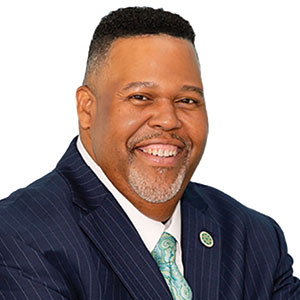What if I told you that you have the power to predict the future?
OK, not exactly. Nobody can say what is going to happen tomorrow, next week or next year. But you do have the power to anticipate the future and do it with accuracy. And because you can anticipate, you can prepare. I like to call it “future-proofing” your organization. It involves a great deal of observing, analyzing data, asking questions and using all that information to formulate a plan.
When I became the president of Cuyahoga Community College (Tri-C®) in 2022, institutions like ours were facing a post-pandemic sea change: students were interacting with higher education in a whole new way. The traditional classroom-based model was taking a back seat to other modes of learning, such as remote and on-demand. We had to pivot. We had to listen and observe. We had to figure out how we could evolve — and do it quickly.
In the past two years, Tri-C has taken numerous steps to adjust its educational approach and roll out new program options, including the addition of our first bachelor’s degree program this fall — a Bachelor of Applied Science in Integrated Digital Manufacturing Engineering Technology, often called “smart manufacturing.”
We saw the landscape of higher education changing, and we saw a need that existed for both our students and the manufacturers in the region. One of those companies — local manufacturing and technology giant Lincoln Electric — helped us develop the curriculum for the new degree.
By offering a bachelor’s degree in smart manufacturing, we have positioned ourselves to provide a path to completion and employment for thousands of students looking to enter the field. Instead of transferring to another institution to pursue a bachelor’s degree, they can continue to learn from our expert instructors and benefit from our state-low tuition rates. On the corporate side, our local manufacturing companies will benefit from a steady stream of Tri-C graduates trained in this cutting-edge field and ready to work.
Our new bachelor’s degree is just one example of how we’ve taken steps to future-proof our institution, and we aren’t done yet. No business or organization that serves customers or the public should ever be done evolving. As you look at your own organization and anticipate your future, what guidelines can you use to help future-proof your business? These are some things to remember:
Study: Start with the facts of your context. Where are you in your business life cycle? What market conditions surround your organization? What are your strengths? What are your limitations? What can you realistically accomplish?
Speak: State and stand by what you believe. A leader — and, by extension, a business — needs to have principles that serve as its guiding light. And everybody needs to know them in order to have a sense of direction.
See: Understand the needs of those you serve. Are you connected to your customers and community? How are you responding to their needs?
Seek: Who cares about what you care about? Every organization has a mission. Are you connecting with like-minded people who believe in your mission and can help you advance it?
Serve: Do what you can until you can do more. You won’t reach your end goal overnight. Incremental steps toward a better future still equal progress.
Though the future will always be an ultimate unknown, you can still do much to shape it. In a sense, we all have the power to predict the future.
Michael A. Baston is President of Cuyahoga Community College.

